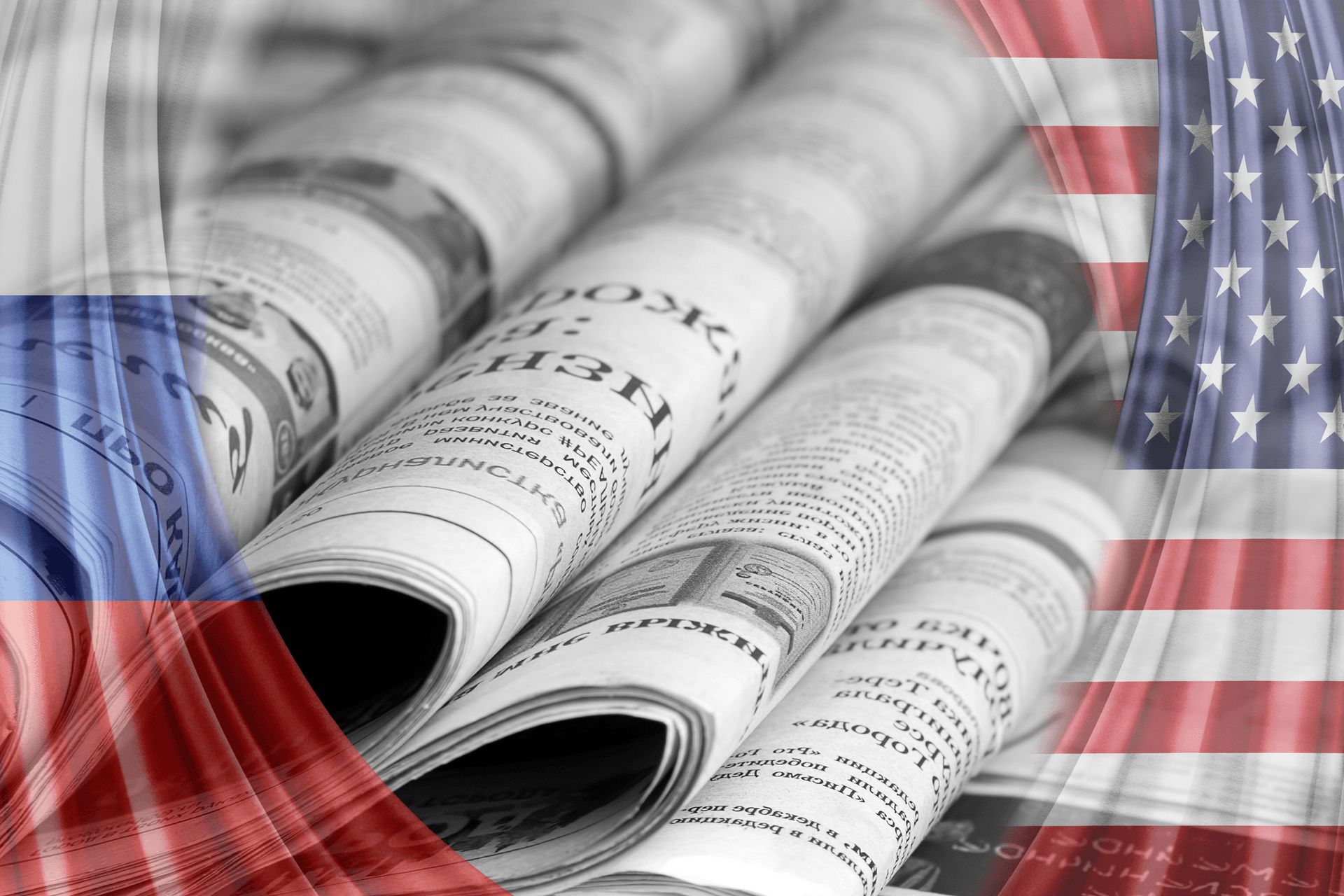Trump, Harris, and the U.S. Election Through the Russian Media Lens: A WNM Roundup

As the U.S. election approaches its final stages, news outlets are increasingly examining the potential challenges and developments that come with it. Researchers and analysts are particularly focused on foreign influence campaigns across social media, with reports pointing to notable activity originating from Iran, China, and Russia.
In this report, the WNM team delves specifically into Russia’s agendas, viewpoints, and messaging strategies. By analyzing social media narratives, WNM aims to uncover and understand the stories that may be promoted to English-speaking audiences, identifying themes and techniques that suggest Russian influence. Through comprehensive social media analysis, WNM’s goal is to provide a clear overview of the key propaganda messages likely to impact public perception.
Trump Narratives
Traditionally, Russian propaganda has selectively supported Trump’s candidacy, often by citing American and Western news sources to lend credibility to its narratives. For instance, a recent article in Vedomosti references early elections and poll results from The Financial Times and The Wall Street Journal, implying that Trump is more trusted on economic issues. The same article, however, also suggests that inflation, interest rates, and the budget deficit could increase if Trump were to become president.
While Vedomosti maintains a business-focused and relatively neutral stance on the upcoming U.S. elections, several notable points appear in its recent analysis article titled ‘Arabs support Trump‘. Among these are statistics sourced from American organizations such as the Arab American Institute (AAI), Arab News, and YouGov. The article reports on Arab-American perspectives on the race, identifying Trump as a favored candidate among those who view him as more capable of addressing Middle East conflicts. Vedomosti also highlights the conflict in Gaza as a primary motivator for voter participation among Arab-American communities.
News outlet URA.RU among the latest news published articles that focus on the consequences of the elections for Putin, mocking commentary about the current President of the United States and article about the misinformation on X (Twitter) platform referencing Associated Press.
The headlines reflect familiar critiques of Joe Biden, a theme present in Russian propaganda since the beginning of his term. One article addresses misinformation, claiming that the social media platform X struggles to effectively filter false narratives, particularly those alleging instability and unreliability in the 2020 election system.
A separate article provides more insight into political perspectives within Russia. It includes remarks from UFC fighter Oleg Taktarov, who suggests that a cooperative solution to the conflict in Ukraine could be reached between Putin and Trump if Trump were to return to the presidency.
Sports remain a prominent topic in Russian media, particularly in the context of political discussions. The ban on Russian teams from international competitions is often framed as a grievance against the West, with some commentators viewing Trump’s potential presidency as a pathway to addressing these issues. An article in a leading Russian sports outlet suggests that Trump, if elected, would advocate for Russian athletes. The piece also emphasizes the importance of BRICS countries gaining a stronger presence in the international sports arena, framing it as a strategic move for global influence.
Allegations of election fraud are another focal point in discussions surrounding the upcoming U.S. elections. An article published on Life.ru argues that the American election system is undemocratic, ‘archaic’, and vulnerable to manipulation, particularly due to mail-in voting procedures. The article features commentary from Russian political scientist Bashirov, who suggests that if the U.S. employed a direct election system similar to Russia’s, “Trump would definitely win.” The article additionally reports that 60% of the Russian population is closely following the American elections, highlighting the significant attention this event receives within Russia. This narrative is echoed across other news outlets and among prominent media figures in Russia, including officials within the Central Election Commission and even its senior leadership.
In conclusion, an article on Finam.ru delves into the perspectives of Russian immigrants in the U.S. regarding the upcoming elections. According to the article, older Russian immigrants tend to favor Donald Trump, while younger generations lean toward Kamala Harris. Despite these differences, there is a common dissatisfaction with the state of affairs in the U.S., although immigration from Russia to the U.S. continues to grow. The article suggests that discussions around the elections may serve as a decoy for deeper frustrations linked to the “Special Military Operation” in Ukraine, which has reportedly worsened perceptions of Russia abroad. The piece also notes that while most Russian-American individuals express support for Trump, there are mentions of a few younger voters supporting Harris.
Harris Narratives
The same news sources present Democratic presidential candidate Kamala Harris in a notably different light. URA.RU, for instance, highlighted recent moments from Harris’s “Closing Argument” speech, emphasizing an incident where audience members calling for an end to U.S. arms transfers to Ukraine were removed from the event. The article concludes by suggesting that Democrats may fear a potential Trump return, speculating that he could launch investigations—or even pursue charges—against both the current President and Vice President in connection with the Nord Stream 2 pipeline explosion.
Apart from a few obscure news outlets and occasional personal remarks, there appears to be limited coverage or in-depth political analysis of Kamala Harris by Russian state media. This suggests that the propaganda strategy may be cautiously neutral, perhaps in anticipation of a potential Harris victory. In fact, one article titled “Mental Disorders and Escort: Secrets of Kamala Harris, Biography, Career, Position on Ukraine” included a comment attributed to President Putin remarked that Harris’s characteristic laughter seems to imply her mental health is “just fine.”
The opposition-leaning Russian-language news sources analyzed tend to maintain a neutral stance, aligning more closely with the approach of Western media. These outlets avoid favoring one candidate over the other and generally refrain from publishing overtly explicit or offensive characterizations of either candidate.
Conclusion
As the U.S. election nears, Russian media narratives reveal a nuanced approach to both candidates, with a more measured stance on Kamala Harris and selectively supportive narratives toward Trump. Coverage often amplifies skepticism around the U.S. electoral process and promotes themes of Western failure in response to Russian interests. Russian outlets like Vedomosti and Life.ru highlight foreign policy and economic challenges, portraying Trump as more favorable for Russia’s agenda, particularly regarding economic issues and international sports.
Coverage subtly supports Trump as a candidate more aligned with Russian interests, while portrayals of Kamala Harris remain reserved, reflecting a wait-and-see approach. This balanced stance underscores Russia’s objective to promote its own worldview and foster international skepticism of U.S. leadership without committing to either election outcome.
Moreover, Russian media strategically focuses on the conflicts in Ukraine and Gaza, framing them among key issues influencing American voter sentiment. Before, Russian propaganda has been suggesting that the West, and particularly the U.S., is responsible for instigating and sustaining these conflicts, aiming to cast doubt on American foreign policy and its global impact.
The upcoming U.S. elections carry substantial global implications, making OSINT monitoring essential for understanding international narratives and influence efforts. Contact WNM for more detailed analysis.
More from the author



